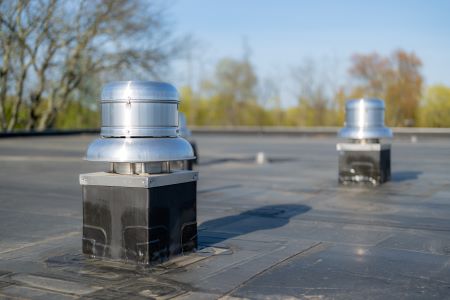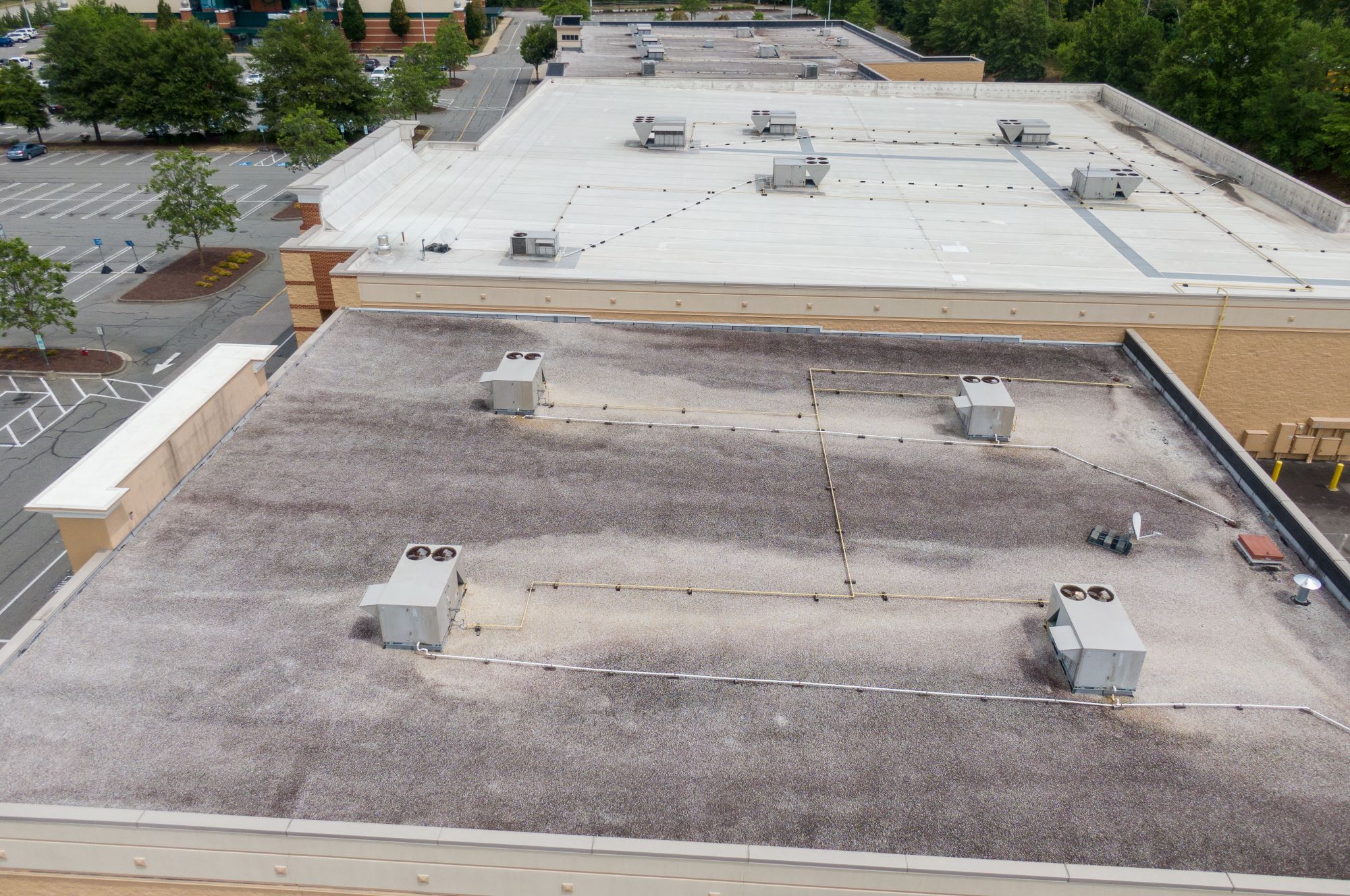Roofs play a vital role in safeguarding the structural integrity of a building, protecting its contents, and ensuring the comfort of its occupants. Given the substantial investment a roof represents, regular inspections are paramount, especially for commercial establishments. But how often should a commercial roof be inspected to maintain its longevity and function? Let’s explore this while also shedding light on commercial roofing solutions, the role of industrial roofing contractors, and the intricacies of different commercial roofing systems.
1. Importance of Regular Commercial Roof Inspections:
Consistent inspections can unveil potential problems before they morph into significant, cost-intensive issues. Early detection of leaks, for example, can prevent water damage to the building’s interior and the growth of mold or mildew. Apart from addressing immediate concerns, these checks also contribute to the longevity of commercial roofing systems, ensuring they serve the establishment for their intended lifespan or even longer.
2. Recommended Inspection Frequency:
As a general rule, commercial roofs should be inspected at least twice a year: once in the spring and once in the fall. This biannual approach accounts for potential damage that might occur during the harsh winter months or the summer season, where some regions might experience severe storms or extreme heat.
Spring Inspection: After the winter season, inspections can identify any damage caused by snow, ice, or freezing temperatures. Problems like ice damming, where ice prevents proper water drainage, leading to potential leaks, can be detected and addressed.
Fall Inspection: Before the onset of winter, a fall inspection ensures that the roof is in optimal condition to withstand cold temperatures and snow. Any wear and tear from the summer months, such as damage from UV radiation or thermal cycling, can also be identified.
3. After Severe Weather Events:
Apart from the biannual checks, commercial roofs should be inspected after significant weather events, such as hailstorms, hurricanes, or heavy rainfall. Such events can cause immediate and visible damage or subtle issues that may only manifest over time. Early detection ensures prompt remediation, preventing minor issues from escalating.
4. Different Commercial Roofing Systems and Their Inspection Needs:
Different commercial roofing solutions come with their unique set of vulnerabilities:
Built-Up Roofing (BUR): While known for their durability, BUR systems can develop bubbles or blisters if moisture gets trapped. Regular inspections can identify these early on.
Metal Roofing: Metal roofs are susceptible to corrosion or damage at the seams. Regular checks can spot these problems, ensuring timely intervention.
Single-Ply Membranes (like EPDM, TPO, or PVC): These systems can develop punctures, tears, or issues at the seams. Periodic inspections can help detect such issues, ensuring the roof remains watertight.
Modified Bitumen: This roofing solution can exhibit signs of blistering, ridging, or splitting. Regular inspections can identify these problems in their nascent stages.
Given the unique needs of different systems, engaging with industrial roofing contractors who specialize in your particular roofing solution is advisable. These experts can provide insights tailored to the specific commercial roofing system installed on the establishment.
5. The Role of Industrial Roofing Contractors:

Engaging with experienced industrial roofing contractors ensures that inspections are thorough and accurate. These professionals possess the expertise to:
Identify Issues: From minor leaks to potential structural issues, roofing contractors can spot problems that might be missed by untrained eyes.
Recommend Solutions: Once problems are detected, these experts can provide recommendations on the best commercial roofing solutions tailored to the specific issues at hand.
Provide Maintenance: Apart from identifying problems, industrial roofing contractors can also offer maintenance services, which are just as crucial. Regular cleaning, for instance, can prevent debris buildup, ensuring drains and gutters function optimally.
6. Documentation and Proactive Approach:
Every roof inspection should be meticulously documented. These records can serve as a reference for future inspections, helping track the roof’s condition over time. Documentation can also be crucial for warranty claims or insurance purposes.
Additionally, a proactive approach to roofing maintenance, where potential problem areas are addressed even before they manifest as visible issues, can be beneficial. For instance, if a section of the roof experiences heavy foot traffic, considering protective measures can preempt wear and tear.
Conclusion:
In essence, while biannual inspections are a recommended standard, the specific needs of an establishment’s roof, its geographic location, and any extraordinary events it might be subjected to play a pivotal role in determining the exact frequency. Regular inspections, coupled with timely interventions, can save businesses significant costs in the long run, ensuring the commercial roofing system’s longevity and functionality. Engaging with seasoned industrial roofing contractors and adopting a proactive stance towards roof maintenance is the key to optimizing the lifespan and efficacy of a commercial roof.
- Commercial Roof Installation Tampa FL
- Flat Roof Repair Tampa FL
- Commercial Roof Maintenance Tampa FL
- Commercial Roofing Contractors Tampa FL
- Commercial Emergency Roof Service Tampa FL
- Commercial Roof Repair Tampa FL
- Roof Coating Company Tampa FL
- Flat Roof Replacement Tampa FL
- Metal Roofing Contractors Tampa FL
- Commercial Roof Replacement Tampa FL
- Flat Roof Installation Tampa FL
- Commercial Roof Installation Asheville NC
- Commercial Roof Installation Orlando FL
- Flat Roof Repair Orlando FL
- Commercial Roof Maintenance Orlando FL
- Commercial Roofing Contractors Orlando FL
- Commercial Emergency Roof Service Orlando FL
- Commercial Roof Repair Orlando FL
- Roof Coating Company Orlando FL
- Flat Roof Replacement Orlando FL
- Metal Roofing Contractors Orlando FL
- Commercial Roof Replacement Orlando FL
- Flat Roof Installation Orlando FL
- Flat Roof Repair Asheville NC
- Commercial Roof Maintenance Asheville NC
- Commercial Roofing Contractors Asheville NC
- Commercial Roof Installation Jacksonville FL
- Commercial Roofing Contractors Jacksonville FL
- Commercial Roofing Contractors Atlanta GA
- Commercial Roofing Contractors Mobile AL
- Commercial Roof Installation Atlanta GA
- Commercial Roof Installation Mobile AL
- Flat Roof Repair Jacksonville FL
- Flat Roof Repair Atlanta GA
- Flat Roof Repair Mobile AL
- Commercial Roof Maintenance Jacksonville FL
- Commercial Roof Maintenance Atlanta GA
- Commercial Roof Maintenance Mobile AL
- Commercial Emergency Roof Service Asheville NC
- Commercial Emergency Roof Service Jacksonville FL
- Commercial Emergency Roof Service Atlanta GA
- Commercial Emergency Roof Service Mobile AL
- Commercial Roof Repair Asheville NC
- Commercial Roof Repair Jacksonville FL
- Commercial Roof Repair Atlanta GA
- Commercial Roof Repair Mobile AL
- Roof Coating Company Asheville NC
- Roof Coating Company Jacksonville FL
- Roof Coating Company Atlanta GA
- Roof Coating Company Mobile AL
- Flat Roof Replacement Asheville NC
- Flat Roof Replacement Jacksonville FL
- Flat Roof Replacement Atlanta GA
- Flat Roof Replacement Mobile AL
- Metal Roofing Contractors Asheville NC
- Metal Roofing Contractors Jacksonville FL
- Metal Roofing Contractors Atlanta GA
- Metal Roofing Contractors Mobile AL
- Commercial Roof Replacement Asheville NC
- Commercial Roof Replacement Jacksonville FL
- Commercial Roof Replacement Atlanta GA
- Commercial Roof Replacement Mobile AL
- Flat Roof Installation Asheville NC
- Flat Roof Installation Jacksonville FL
- Flat Roof Installation Atlanta GA
- Flat Roof Installation Mobile AL

